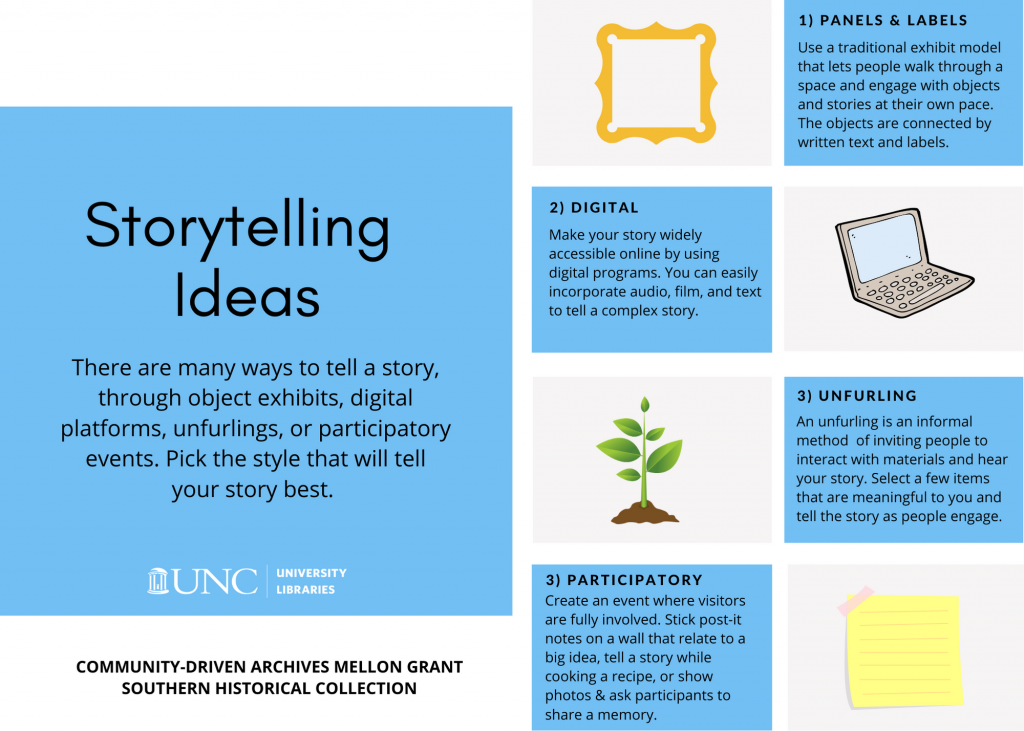Overview
Related Resources
Collaborating with Archives on Community Memory Projects
How to Participate in a Community Archive Project
Related Resources
Crafting the Story of an Exhibition
Related Resources
Black Communities Conference Charrette Activity
Related Resources
Storytelling is the spark. It can ignite celebration, memory, catharsis, or movements for social justice.
We acknowledge that the collections we hold tell a story mediated through our institution. For that reason, we want to complicate traditional narratives and ensure that communities are able to tell their own stories on their terms. We see community-driven archives as a way for all types of communities to use existing materials or to curate new materials to share their stories.

Here are a few examples of what community storytelling can look like:
Websites
The Appalachian Student Health Coalition (ASHC) curated a website to share its experiences providing health care in rural Tennessee in the 1960’s and 1970’s. ASHC hopes its project will provide a framework for compassionate care to contemporary health practitioners and policy makers.
Appalachian Student Health Coalition
Announcing the Launch of the Student Health Coalition Website
Exhibitions
The Eastern Kentucky African American Migration Project curated a traveling exhibition to tell the story of Black coal miners and their families in the Appalachian region. They tell these stories to celebrate their community’s resilience, to honor their ancestors, and to instill their community’s values in their grandchildren.
Gatherings
The Historic Black Towns and Settlements Alliance (HBTSA) hosted a variety of trainings and presentations to engage community members and local HBCU students in local history. HBTSA members aim to amplify their towns’ impressive histories, catalyzing local history to promote cultural tourism, a critical economic engine for their communities.
Community Archives
The San Antonio African American Community Archive and Museum started a new cultural heritage institution in the middle of the city. It collects and shares the Black history of San Antonio to build more cohesion among the city’s Black residents and to advocate for a broad range of issues that affect the Black community, including public education, affordable housing, and criminal justice reform.
Academic Research
The community members and scholars that visit Carolina libraries’ reading rooms at the Wilson Special Collections Library to read through the collections are doing valuable work to contextualize materials and build new knowledge. Reference librarians are available to help researchers navigate and access the collections.
Using Archival Materials for Research
Genealogy
Family history work is often the gateway to exploring archival research. It is the spark for many new community memory projects and local collections that fill knowledge gaps left by bigger repositories. When genealogies are shared with broader audiences, individuals can develop an incredible sense of pride and a deepened connection to their community.
Documentaries
The integration of image, voice, music, and video is a very compelling way to tell a story. We acknowledge this work often requires a team and can be an expensive process, but it is achievable, even on a shoestring budget.
